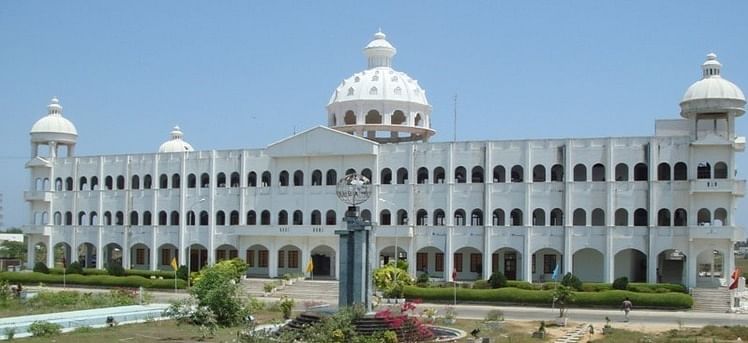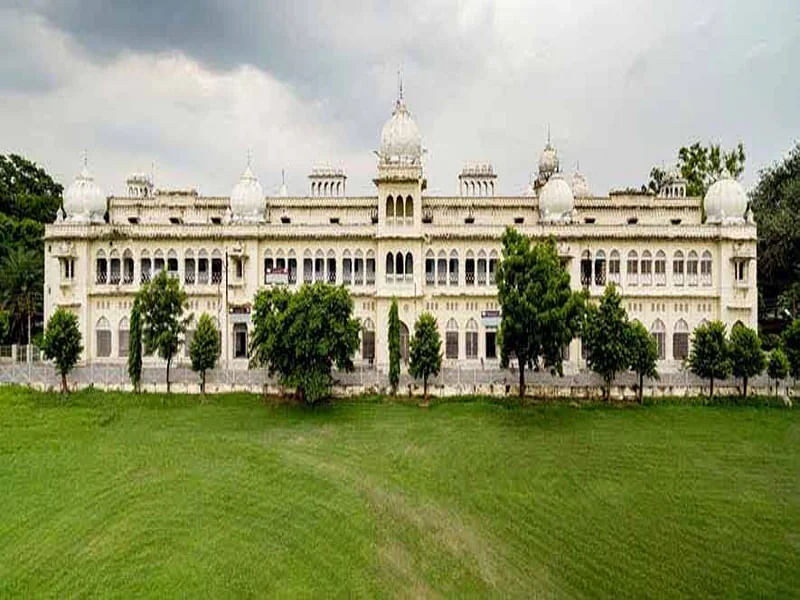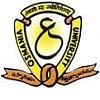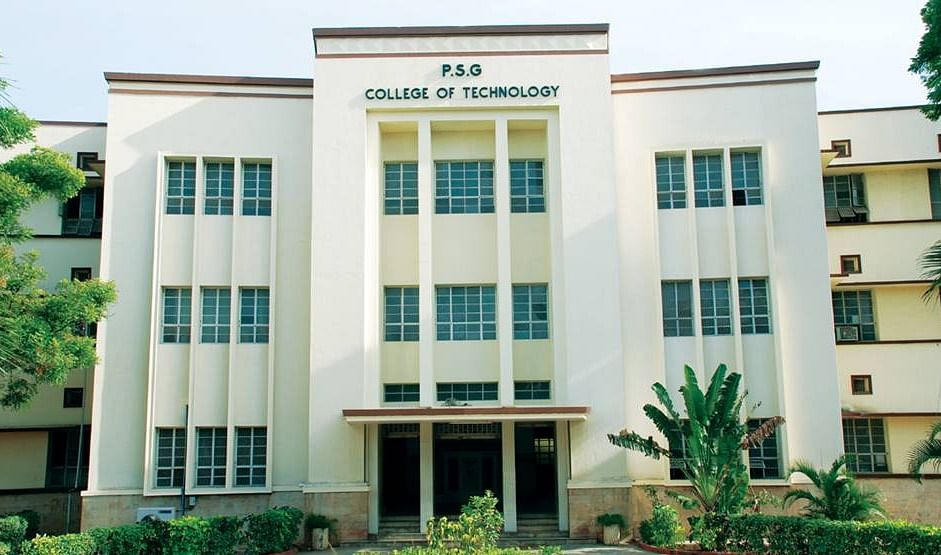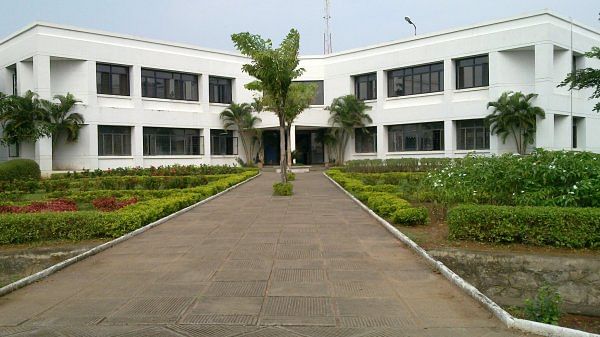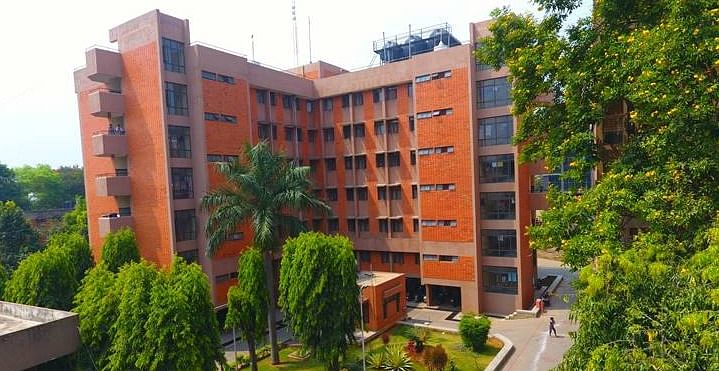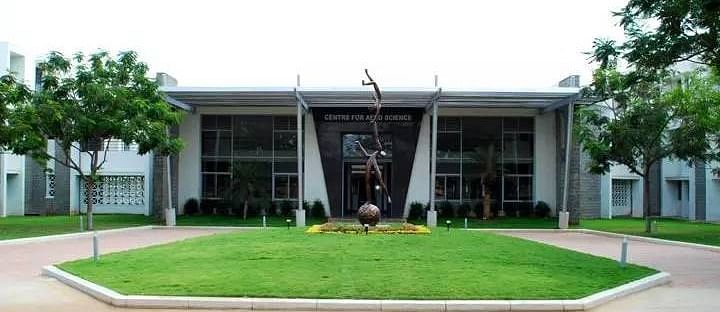BE EEE Syllabus and Subjects

The BE EEE syllabus is structured over eight semesters and focuses on topics such as Electric Circuits, Control Systems, Analog Electronics, Electrical Measurements, Transmission Systems, and more. The BE EEE course curriculum includes a combination of core subjects, elective offerings, practical/laboratory sessions, internships, and projects.
The core BE EEE subjects deal with important topics such as Circuit Theory, Power Electronics, Electromagnetic Theory, Power Systems, High Voltage Engineering, etc. The elective subjects focus on crucial topics such as Advanced Control Systems, Robotics, Communication Engineering, Computer Architecture, Smart Grid, and more.
Students gain practical experience with laboratory experiments and practical sessions that utilize software tools and lab equipment for various experiments and tests. In addition, industrial training and internships provide students with opportunities to work with leading companies in the electrical engineering field.
Table of Contents
BE EEE Syllabus Semester Wise
The B.E EEE syllabus spans four years and is generally the same across institutions in India. However, there may be minor variations in the structure of the curriculum depending on institutions. The BE EEE semester wise syllabus followed by most institutions in India is given in the sections below.
BE EEE Syllabus 1st Year
The BE Electrical and Electronics Engineering syllabus for 1st year deals with basic concepts such as Engineering Physics, Circuit Theory, Civil and Mechanical Engineering, etc. Below listed is the BE EEE Engineering 1st year syllabus.
|
Semester I |
Semester II |
|
Communicative English |
Technical English |
|
Mathematics-I |
Mathematics - II |
|
Engineering Physics-I |
Engineering Physics-II |
|
Engineering Chemistry |
Basic Civil and Mechanical Engineering |
|
Problem Solving and Python Programming |
Circuit Theory |
|
Engineering Graphics |
Environmental Studies |
|
Practical / Lab Work |
Practical / Lab Work |
Practical Topics For BE EEE Syllabus 1st Year
The practical topics for the BE EEE 1st year syllabus are listed below.
- Problem-Solving and Python Programming Laboratory
- Physics and Chemistry Laboratory
- Engineering Practices Laboratory
- Electric Circuits Lab
BE EEE Syllabus 2nd Year
The BE EEE subjects 2nd year focuses on topics such as Electromagnetism, Control Systems, Electrical Machines, etc. The EEE Engineering syllabus 2nd year is listed in the table below.
|
Semester III |
Semester IV |
|
Transforms & Partial Differential Equations |
Numerical Methods |
|
Digital Logic Circuits |
Electrical Machines – II |
|
Electromagnetic Theory |
Transmission & Distribution |
|
Electrical Machines – I |
Measurements & Instrumentation |
|
Electron Devices and Circuits |
Linear Integrated Circuits & Applications |
|
Power Plant Engineering |
Control Systems |
|
Practical / Lab Work |
Practical / Lab Work |
Practical Topics for BE EEE Syllabus 2nd Year
The practical topics for the BE EEE 2nd year syllabus are given below.
- Electronics Laboratory
- Electrical Machines Laboratory
- Linear & Digital Integrated Circuits Laboratory
BE EEE Syllabus 3rd Year
The BE syllabus of Electrical and Electronics Engineering in the third year deals with topics such as Power Electronics, Signal Processing, Embedded Systems, etc. The fourth-year BE Electronics and Electrical Engineering syllabus is provided in the table below.
|
Semester V |
Semester VI |
|
Power System Analysis |
Solid State Drives |
|
Power Electronics |
Protection and Switchgear |
|
Microprocessors and Microcontrollers |
Embedded Systems |
|
Digital Signal Processing |
Advanced Control System / Design of Electrical Apparatus / Power Systems Stability |
|
Object Oriented Programming |
Principles of Robotics / Special Electrical Machines / Communication Engineering |
|
Practical / Lab Work |
Practical / Lab Work |
Practical Topics for BE EEE Syllabus 3rd Year
The BE EEE 3rd year syllabus practical topics are given below.
- Control and Instrumentation Laboratory
- Object-Oriented Programming Laboratory
- Power Electronics and Drives Laboratory
- Microprocessors and Microcontrollers Laboratory
BE EEE Syllabus 4th Year
The fourth-year BE EEE Engineering syllabus focuses on topics such as Renewable Energy, System Operations, High Voltage Engineering, and more. Listed below is the BE EEE 4th year syllabus.
|
Semester VII |
Semester VIII |
|
High Voltage Engineering |
Power Systems Dynamics / SMPS and UPS / Principles of Management |
|
Power System Operation and Control |
Microcontroller Based System Design / Smart Grid / Nano Science |
|
Renewable Energy Systems |
Practical / Lab Work |
|
Disaster Management / Operations Research / Fibre Optics and Laser Instrumentation |
Project Work |
|
Computer Architecture / VLSI Design / Total Quality Management |
- |
|
Practical / Lab Work |
- |
Practical Topics for BE EEE Syllabus 4th Year
Listed below are the practical topics for the 4th year BE EEE course syllabus.
- Power System Simulation Laboratory
- Renewable Energy Systems Laboratory
BE EEE Subjects-Core & Electives
The BE Electrical and Electronics Engineering subjects offer a structured blend of theoretical and practical coursework. The core and elective subjects equip students with an extensive understanding of engineering principles while the laboratory subjects help students apply theoretical knowledge to practical applications.
The BE EEE subjects list and topics covered under them are provided in the sections below.
BE EEE Subjects 1st Year
The BE EEE Engineering subjects 1st year focuses on fundamental engineering subjects such as Engineering Physics, Circuit Theory, Engineering Graphics, etc. The subjects in BE EEE Engineering 1st year along with the topics covered under them are given in the table below.
|
Subjects |
Topics Covered |
Subject Type |
|
Mathematics-I |
Differential Calculus, Functions of Several Variables, Integral Calculus, Multiple Integrals, Differential Equations |
Core |
|
Engineering Physics-I |
Properties of Matter, Waves & Fiber Optics, Thermal Physics, Quantum Physics, Crystal Physics |
|
|
Engineering Chemistry |
Water and It’s Treatment, Surface Chemistry, Catalysis, Alloys & Phase Rule, Fuels & Combustion, Energy Sources & Storage Devices |
|
|
Problem Solving and Python Programming |
Algorithm Problem-Solving, Data, Expressions, Statements, Control Flow, Functions, Lists, Tuples, Dictionaries, Files, Modules, Packages |
|
|
Engineering Graphics |
Plane Curves, Freehand Sketching, Projection of Points Lines & Plane Surface, Projection of Solids, Isometric & Perspective Projections |
|
|
Communicative English |
General Reading, Writing, Grammar, Language Development, Extended Writing |
|
|
Technical English |
Reading and Study Skills, Technical Writing & Grammar, Report Writing, Group Discussions |
|
|
Mathematics-II |
Matrices, Vector Calculus, Analytic Functions, Complex Integration, Laplace Transforms |
|
|
Engineering Physics-II |
Electrical Properties of Materials, Semiconductor Physics, Magnetic & Dielectric Properties of Materials, Optical Properties of Materials, Nanoelectronic Devices |
|
|
Basic Civil and Mechanical Engineering |
Engineering Materials, Building Components & Structures, Internal Combustion Engines, Power Plants, Refrigeration & AC System |
|
|
Circuit Theory |
Basic Circuit Analysis, Network Reduction & Theorems for DC & AC Circuits, Transient Reponse Analysis, Three Phase Circuits |
|
|
Environmental Studies |
Environment, Ecosystems, Biodiversity, Environmental Pollution, Natural Resources |
|
|
Problem-Solving and Python Programming Laboratory |
Newton’s Method, Linear Search, Binary Search, Merge Sort, Pygame |
Laboratory/Practical |
|
Physics and Chemistry Laboratory |
Torsion Pendulum, Lee’s Disc Method, Ultrasonic Interferometer, Winkler’s Method, Photometer, Ostwald Viscometer, Potentiometer |
|
|
Engineering Practices Laboratory |
Buildings, Plumbing Works, Carpentry using Power Tools, Welding, Basic Machining, Sheet Metal Work |
|
|
Electric Circuits Lab |
Kirchoff’s Voltage & Current Laws, Thevenin’s Theorem, Norton’s Theorem, Maximum Power Transfer Theorem |
BE EEE Subjects 2nd Year
The BE EEE course subjects in the second year deal with topics such as Electrical & Electronic Instruments, Distribution System, Control System, etc. The BE Electronics and Electrical Engineering subjects 2nd year and the topics covered under them are listed in the table below.
|
Subjects |
Topics Covered |
Subject Type |
|
Transforms & Partial Differential Equations |
Partial Differential Equations, Fourier Series, Applications of Partial Differential Equations, Fourier Transforms, Z-Transforms |
Core |
|
Digital Logic Circuits |
Number Systems, Digital Logic Families, Combinational Circuits, Synchronous & Asynchronous Sequential Circuits, VHDL |
|
|
Electromagnetic Theory |
Electrostatics, Magnetostatics, Electrodynamic Fields, Electromagnetic Waves |
|
|
Electrical Machines-I |
Magnetic Circuits, Magnetic Materials, Transformers, Electromechanical Energy Conversion, DC Generators & Motors |
|
|
Electron Devices and Circuits |
PN Junction Devices, Transistor & Thyristors, Amplifiers, Multistage Amplifiers, Differential Amplifiers, Feedback Amplifiers, Oscillators |
|
|
Power Plant Engineering |
Coal Based Thermal Power Plants, Diesel Gas Turbine & Combined Cycle Power Plants, Nuclear Power Plants, Power From Renewable Energy |
|
|
Numerical Methods |
Solution of Equations, Eigenvalue Problems, Interpolation & Approximation, Numerical Differentiation & Integration |
|
|
Electrical Machines-II |
Synchronous Generator & Motor, Three Phase Induction Motors, Single Phase Induction Motors, Special Machines |
|
|
Transmission & Distribution |
Transmission Line Parameters, Modelling, Mechanical Design of Lines, Under Ground Cables, Distribution System |
|
|
Measurements & Instrumentation |
Electrical & Electronic Instruments, Comparative Methods of Measurement, Storage & Display Devices, Transducers, Data Acquisition Systems |
|
|
Linear Integrated Circuits & Applications |
IC Fabrication, OP amp, Special ICs, Application ICs |
|
|
Control Systems |
System & Representation, Time Response, Frequency Response, Stability & Compensator Design, State Variable Analysis |
|
|
Electronics Laboratory |
Semiconductor Diode, Zener Diode, Common Emitter Amplifier, LC Oscillators, Frequency & Phase Measurements |
Laboratory/Practical |
|
Electrical Machines Laboratory |
DC Shunt Generator, Swinburne’s Test, Hopkinson’s Test, Single Phase Transformers, 3-Phase Transformers |
|
|
Linear & Digital Integrated Circuits Laboratory |
CRO, Digital Multimeter, Function Generator, IC Tester, Zener Diodes, Potentiometer, Capacitor |
BE EEE Subjects 3rd Year
The BE Electrical and Electronics subjects in the third year cover important topics such as Power Flow Analysis, Protection & Switchgear, Digital Signal Processors, and more. The third-year BE subject in EEE Engineering and the topics covered are provided in the table below.
|
Subjects |
Topics Covered |
Subject Type |
|
Power System Analysis |
Power System, Power Flow Analysis, Symmetrical Fault Analysis, Unsymmetrical Fault Analysis, Stability Analysis |
Core |
|
Power Electronics |
Power Semi-Conductor Devices, Phase-Controlled Converters, DC To DC Convertors, Inverters, AC To AC Converters |
|
|
Microprocessors and Microcontrollers |
8085 Processor, Programming of 8085 Processor, 8051 Micro Controller, Peripheral Interfacing |
|
|
Digital Signal Processing |
Discrete-Time System Analysis, Discrete Fourier Transform & Computation, Design of Digital Filters, Digital Signal Processors |
|
|
Object Oriented Programming |
OOP and Java Fundamentals, Inheritance, Interfaces, Exception Handling & I/O, Multithreading & Generic Programming, Event Driven Programming |
|
|
Solid State Drives |
Drive Characteristics, Converter/Chopper Fed DC Motor Drive, Induction Motor Drives, Synchronous Motor Drives, Design of Controllers for Drives |
|
|
Protection and Switchgear |
Protection Schemes, Electromagnetic Relays, Apparatus Protection, Static Relays, Numerical Protection, Circuit Breakers |
|
|
Embedded Systems |
Embedded Networking, Embedded Firmware Development Environment, RTOS Based Embedded System Design, Embedded System Application & Development |
|
|
Advanced Control System |
State Variable Analysis, State Variable Design, Sampled Data Analysis, Non-Linear Systems, Optimal Control |
Elective |
|
Design of Electrical Apparatus |
Field System, Armature, Transformers, DC Machines, Induction Motors, Synchronous Machines |
|
|
Power Systems Stability |
Stability, Small-Signal Stability, Transient Stability, Voltage Stability |
|
|
Principles of Robotics |
Basic Concepts, Direct & Inverse Kinematics, Manipulator Differential Motion & Statics, Path Planning, Dynamics & Control |
|
|
Special Electrical Machines |
Stepper Motors, Switched Reluctance Motors, Permanent Magnet Synchronous Motors |
|
|
Communication Engineering |
Analog Modulation, Pulse Modulation, Digital Modulation & Transmission, Information Theory & Coding, Spread Spectrum & Multiple Access |
|
|
Control and Instrumentation Laboratory |
P PI & PID Controllers, Stability Analysis, Position Control Systems, Synchro-Transmitter, Bridge Networks, Signal Conditioning |
Laboratory/Practical |
|
Object-Oriented Programming Laboratory |
Software Using Java Programming, Classes Packages, Interfaces, Arraylist, Exception Handling, File Processing |
|
|
Power Electronics and Drives Laboratory |
Gate Pulse Generation, SCR, TRIAC, MOSFET, IGBT, Single Phase PWM Inverter, AC Voltage Controller |
|
|
Microprocessors and Microcontrollers Laboratory |
Simple Arithmetic Operations, Programming With Control Instructions, Interface Experiments, I/O Port/Serial Communication |
BE EEE Subjects 4th Year
The fourth-year syllabus of BE EEE Engineering focuses on subjects and topics such as Renewable Energy Systems, Operations Research, High Voltage Engineering, etc. The Bachelor of Engineering EEE subjects and the topics covered in the final year are provided in the table below.
|
Subjects |
Topics Covered |
Subject Type |
|
High Voltage Engineering |
Over Voltages in Electrical Power Systems, Generation & Measurement of High Voltages & High Currents, Testing & Insulation Coordination |
Core |
|
Power System Operation and Control |
Real Power - Frequency Control, Reactive Power- Voltage Control, Economic Operation & Computer Control of Power System |
|
|
Renewable Energy Systems |
Sources, Wind Energy, Solar PV & Thermal Systems, Biomass Energy |
|
|
Disaster Management |
Disaster Risk Reduction, Inter-Relationship Between Disasters & Development, Disaster Risk Management in India |
Elective |
|
Operations Research |
Linear Models, Transportation Models, Network Models, Inventory Models, Queueing Models, Decision Models |
|
|
Fibre Optics and Laser Instrumentation |
Optical Fibre Properties, Industrial Application, Laser Fundamentals, Hologram & Medical Applications |
|
|
Computer Architecture |
Basic Structure, Computer Arithmetic, Processor & Control Unit, Parallelism, Memory & I/O Systems |
|
|
VLSI Design |
MOS Transistor, Combinational MOS Logic Circuits, Sequential Circuit Design, Design or Arithmetic Building Blocks |
|
|
Total Quality Management |
Principles, Tools, Techniques, Quality Management System |
|
|
Power Systems Dynamics |
Synchronous Machine Modelling, Machine Controllers, Transient Stability, Dynamic Stability |
|
|
SMPS and UPS |
DC-DC Converters, Switched Mode Power Converters, Resonant Converters, DC-AC Converters, Power Conditioners, UPS & Filters |
|
|
Principles of Management |
Management & Organizations, Planning, Organising, Directing, Controlling |
|
|
Microcontroller-Based System Design |
PIC Microcontroller, Interrupts & Timer, Peripheral & Interfacing, ARM Processor, ARM Organization |
|
|
Smart Grid |
Smart Grid Technologies, Smart Meters & Advanced Metering Infrastructure, Power Quality Management, High-Performance Computing |
|
|
Nano Science |
General Methods of Preparation, Nanomaterials, Characterization Techniques, Applications |
|
|
Power System Simulation Laboratory |
Transmission Line Parameters, Gauss-Seidel Method, Newton Raphson Method, SMIB System, Transmission Line Energization |
Laboratory/Practical |
|
Renewable Energy Systems Laboratory |
Solar PV Energy System, VI-Characteristics and Efficiency of 1kWp Solar PV System, Wind Energy Generator, Hybrid (Solar-Wind) Power System, Hydel Systems |
BE EEE Course Structure
The BE EEE course structure includes a combination of core and elective courses along with skill enhancement courses and practical sessions for the overall development of students. The course structure may vary slightly across colleges but the general outline remains the same.
The BE EEE course structure includes:
- VIII Semesters
- Core Subjects
- Elective Subjects
- Practicals
- Projects
- Internships
- Industrial Training
BE EEE Teaching Methodologies and Techniques
The BE EEE program employs a diverse range of teaching methodologies. In addition to classroom instruction, students have the opportunity to select specializations and receive training through elective courses integrated into the curriculum. Some of the key teaching methodologies and techniques used in the BE EEE program include:
- Lectures
- Laboratory
- Group Discussions
- Case Studies
- Workshops
- Guest Lectures
- Industrial Visits
BE EEE Projects
Projects are an integral part of the the BE EEE course curriculum that enables students to apply their theoretical knowledge to practical and real-world applications. The popular project topics for BE EEE are listed below.
- Design a smart system for optimizing energy usage in households.
- Develop a solution for integrating renewable energy sources in a smart grid environment.
- Design and implement a charging system for elective vehicles.
- Create smart security with sensors, cameras, and remote monitoring via the IoT.
- Create a system for optimizing traffic flow and reducing congestion using real-time data collection and analysis.
BE EEE Books
The BE EEE reference books help students understand basic and advanced concepts covered in the curriculum by providing detailed explanations and up-to-date information. The reference books used in the syllabus for BE Electrical and Electronics Engineering are provided in the sections below.
BE EEE Books 1st Year
The BE EEE books for the first year focus on the fundamentals of engineering and science concepts such as Engineering Physics, Circuit Theory, Engineering Mechanics, etc. The first-year BE EEE books are given in the table below.
|
Books |
Authors |
Topics Covered |
|
Higher Engineering Mathematics |
B.S. Grewal |
Algebra, Calculus, Differential Equations, Vector Calculus |
|
Engineering Physics |
B.K. Pandey & S. Chaturvedi |
Quantum Mechanics, Solid State Physics, Optics, Electromagnetism |
|
Basic Mechanical Engineering |
S.R.J. Shanthakumar |
Engineering Mechanics, Stress-Strain, Thermodynamics, Fluid Mechanics |
|
Circuits Theory |
A Chakrabarti |
Network Theorems, Transient Analysis, Network Synthesis |
BE EEE Books 2nd Year
The BE Electrical and Electronics Engineering books for the second year deal with topics such as Electrical Machines, Power Plant Engineering, Transmission Systems, etc. Listed below are the BE EEE second-year books.
|
Books |
Authors |
Topics Covered |
|
Digital Electronics |
James W. Bignel |
Number Systems, Combinational Logic, Sequential Logic, Digital Arithmetic |
|
Electromagnetics With Applications |
Kraus and Flemish |
Vector Analysis, Electrostatics, Magnetostatics, Transmission Lines |
|
Power System Engineering |
D.P.Kothari and I.J. Nagarath |
Power Generation, Power System Components, Fault Analysis |
|
Transducers and Instrumentation |
D.V.S. Murthy |
Transducers, Flow Measurement, Signal Conditioning, Data Acquisition Systems |
BE EEE Books 3rd Year
The BE EEE books for the third year focus on topics such as Power Electronics, Switchgear, Embedded Systems, and more. Below listed are the third-year books for the BE EEE syllabus.
|
Books |
Authors |
Topics Covered |
|
Power System - Analysis and Design |
B.R. Gupta |
Load Flow Studies, Fault Analysis, Stability Analysis, Power System Protection |
|
Switch Gear and Protection |
Arun Ingole |
Protective Relays, Circuit Breakers, Protective Devices |
|
Embedded Systems Engineering |
C.R. Sharma |
Microcontrollers, Embedded Software, System Design, Development Tools |
|
Modern Control System Theory |
M. Gopal |
Control System Analysis, State-Space Analysis, Modern Control Techniques, Digital Control Systems |
BE EEE Books 4th Year
The fourth-year BE EEE books cover topics such as Power System Operation, Renewable Energy, Smart Grid Technology, and more. Listed below are the books used in the fourth-year B.E EEE syllabus.
|
Books |
Authors |
Topics Covered |
|
High Voltage Engineering |
S.Naidu and V. Kamaraju |
Electric Field Stresses, High Voltage Testing, Insulation Coordination |
|
Power System Engineering |
D.P. Kothari & I.J. Nagrath |
Power Generation, Load Flow Analysis, Power System Stability |
|
Renewable Energy & Sustainable Design |
Scott Grinnell |
Solar Energy, Biomass Energy, Hydro Energy, Wind Energy |
|
Nanotechnology |
G. Timp |
Nanomaterials, Nanofabrication, Nanoelectronics, Nanobiotechnology |
Top BE Electrical and Electronics Engineering Colleges
Top Engineering Entrance Exams
BE Electrical and Electronics Engineering Fee Structure
FAQs on BE Electrical and Electronics Engineering Syllabus and Subjects
Q: What is the EEE Engineering subjects list for the first semester?
Q: What are the core subjects in the EEE 2nd semester syllabus?
Q: What are the core 4th sem EEE subjects?
Q: What is the toughest EEE subject in engineering?
Q: Are there any practicals in the syllabus of EEE Engineering?
Q: How is the syllabus for Electrical and Electronics Engineering assessed?
Q: Where to find the Electrical and Electronics Engineering syllabus PDF?




